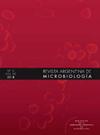Incidencia de microorganismos deteriorantes de la calidad de cerveza en microcervecerías de Buenos Aires
IF 2.1
4区 生物学
Q4 MICROBIOLOGY
引用次数: 0
Abstract
Microbial contaminations pose a significant concern within the brewing industry, exerting negative effects on the organoleptic quality of the product and leading to substantial economic losses. The exponential proliferation of craft breweries in Argentina in recent years has heightened the demand for constant improvements in processes to ensure excellence in beer production. However, the stringency of microbiological quality controls remains a vulnerable area. This study assesses the prevalence of beer contaminants in samples from 10 breweries located in Buenos Aires City (CABA) and Greater Buenos Aires area (GBA). The results revealed the presence of microorganisms in 70% of the analyzed samples. Fifteen bacteria and 19 yeasts were successfully isolated, with bacteria belonging to the genera Acetobacter and Staphylococcus, and yeasts to the genera Saccharomyces, Lodderomyces, Candida, and Pichia. Accurately identifying these microorganisms provides producers with the necessary information for formulating action plans to improve cleaning and sanitization protocols in their facilities. This proactive approach not only has the potential to mitigate economic losses associated with microbial contamination but also contributes to maintaining and elevating quality standards in regional craft beer production.
[布宜诺斯艾利斯微型啤酒厂啤酒腐败微生物的发生率]。
微生物污染是酿造业的一个重大问题,会对产品的感官质量造成负面影响,并导致巨大的经济损失。近年来,阿根廷手工酿造啤酒的数量激增,这就要求不断改进工艺,以确保啤酒生产的卓越品质。然而,微生物质量控制的严格程度仍然是一个薄弱环节。本研究评估了布宜诺斯艾利斯市(CABA)和大布宜诺斯艾利斯地区(GBA)10 家啤酒厂样品中啤酒污染物的流行情况。结果显示,70% 的分析样品中都含有微生物。成功分离出 15 种细菌和 19 种酵母菌,其中细菌属于醋酸杆菌属和葡萄球菌属,酵母菌属于酵母菌属、菟丝子属、念珠菌属和毕赤菌属。准确识别这些微生物可为生产商提供必要的信息,帮助他们制定行动计划,改进设备的清洁和消毒规程。这种积极主动的方法不仅有可能减轻微生物污染带来的经济损失,还有助于保持和提高地区精酿啤酒生产的质量标准。
本文章由计算机程序翻译,如有差异,请以英文原文为准。
求助全文
约1分钟内获得全文
求助全文
来源期刊

Revista Argentina de microbiologia
MICROBIOLOGY-
CiteScore
3.30
自引率
0.00%
发文量
46
审稿时长
>12 weeks
期刊介绍:
La Revista Argentina de Microbiología es una publicación trimestral editada por la Asociación Argentina de Microbiología y destinada a la difusión de trabajos científicos en las distintas áreas de la Microbiología. La Asociación Argentina de Microbiología se reserva los derechos de propiedad y reproducción del material aceptado y publicado.
 求助内容:
求助内容: 应助结果提醒方式:
应助结果提醒方式:


